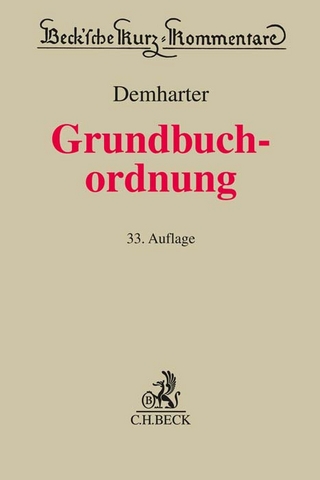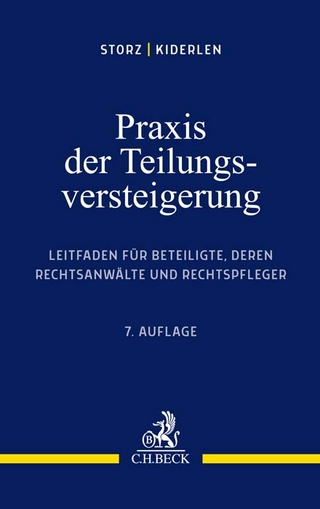
The Great Property Fallacy
Cambridge University Press (Verlag)
978-1-108-42283-3 (ISBN)
In this groundbreaking book, Frank K .Upham uses empirical analysis and economic theory to demonstrate how myths surrounding property law have blinded us to our own past and led us to demand that developing countries implement policies that are mistaken and impossible. Starting in the 16th century with the English enclosures and ending with the World Bank's recent attempt to reform Cambodian land law - while moving through 19th century America, postwar Japan, and contemporary China - Upham dismantles the virtually unchallenged assertion that growth cannot occur without stable legal property rights, and shows how rapid growth can come only through the destruction of pre-existing property structures and their replacement by more productive ones. He argues persuasively for the replacement of Western myths and theoretical simplifications with nuanced approaches to growth and development that are sensitive to complexity and difference and responsive to the political and social factors essential to successful broad-based development.
Frank K. Upham is the Wilf Family Professor of Property Law at New York University School of Law. He teaches Property, Law and Development and various courses on Japanese and Chinese law and society. His book, Law and Social Change in Postwar Japan (1987), won the Thomas J. Wilson Prize from Harvard University Press. In addition to having taught property law for over 30 years at several American law schools, he has taught in Argentina, China, Israel, Japan, and Taiwan. Upham has also worked as a World Bank consultant on the reform of property law in Southeast Asia.
1. Introduction; 2. Physics envy: property rights in development theory; 3. Property and markets: England and America; 4. Property and politics: Japan; 5. Law and development without the law part: China; 6. Theory in action: Cambodia; 7. Property rights and social change.
| Erscheinungsdatum | 13.02.2018 |
|---|---|
| Zusatzinfo | Worked examples or Exercises |
| Verlagsort | Cambridge |
| Sprache | englisch |
| Maße | 155 x 235 mm |
| Gewicht | 360 g |
| Themenwelt | Recht / Steuern ► EU / Internationales Recht |
| Recht / Steuern ► Privatrecht / Bürgerliches Recht ► Sachenrecht | |
| Sozialwissenschaften ► Soziologie ► Spezielle Soziologien | |
| Wirtschaft ► Volkswirtschaftslehre | |
| ISBN-10 | 1-108-42283-7 / 1108422837 |
| ISBN-13 | 978-1-108-42283-3 / 9781108422833 |
| Zustand | Neuware |
| Informationen gemäß Produktsicherheitsverordnung (GPSR) | |
| Haben Sie eine Frage zum Produkt? |
aus dem Bereich


